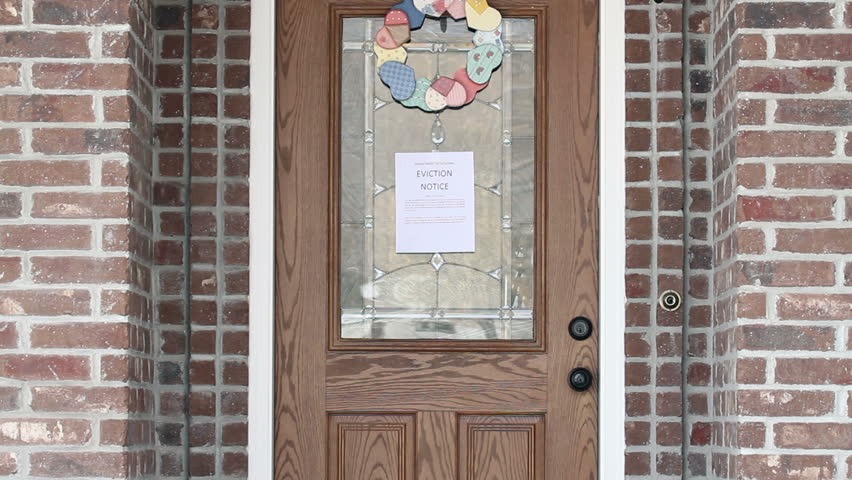You now have what you think might be an abandoned rental property?
You now have what you think might be an abandoned rental property. It’s The Tenants Junk Not yours!
However, proceeding as if the tenant is long gone can be a costly mistake for you. When it comes to abandoned rentals, you must avoid the 3 biggest mistakes landlords can make to keep things legal when recovering your rental property.
Mistake #1: Assuming It’s Abandoned When It’s Not
 Sometimes it is obvious when a tenant abandons a property, such as when they move out in the night and leave you a note and a property full of garbage. Other times, it may be difficult to tell whether the tenant has abandoned the rental unit. In their hurry to turn over a rental unit and get rid of a bad tenant, some landlords may make the mistake of assuming the property is abandoned when in fact it is not.
Sometimes it is obvious when a tenant abandons a property, such as when they move out in the night and leave you a note and a property full of garbage. Other times, it may be difficult to tell whether the tenant has abandoned the rental unit. In their hurry to turn over a rental unit and get rid of a bad tenant, some landlords may make the mistake of assuming the property is abandoned when in fact it is not.
If you are unsure about whether the tenant has truly abandoned the property, find the answers to these questions:
- Is the tenant behind in paying the rent? Many states won’t consider a rental abandoned if the rent is current.
- Are the utilities shut off? A quick call to the utility company will provide you with this information, however, this also may be a coincidence for nonpayment and not necessarily abandonment.
- Is there anything left in the rental unit, like furniture or clothes? If there are valuable items left behind, it’s less likely to be abandoned than if you find garbage or rotting food.
- Did the neighbors notice anything significant? If others witnessed a moving truck at the property the other day, or the tenant told them they were leaving, it helps to solidify other evidence of abandonment.
- Has a change of address been submitted to the post office? A quick visit to the local post office will help you figure it out.
- What do the tenant’s emergency contacts say? You must get in touch with the tenant’s emergency contacts to see if they offer any insights into the tenant’s absence.
No single factor is conclusive—instead, you must consider several things before you can conclude that the property is abandoned. It’s a fine line between a tenant abandoning a property and simply being gone for a while. Unusual circumstances, such as an extended vacation or business trip, a hospital stay or even jail time can make it seem as if the tenant has abandoned the property when legally they are still in possession as long as they have not broken the lease terms.
Mistake #2. Disposing of Personal Property
When tenants leave in a hurry, whether it’s due to eviction proceedings or another reason, they often leave personal property behind. Even if you’ve established that the rental unit is indeed abandoned, you are still required to put in some time and effort into dealing with the tenant’s possessions. New landlords may mistakenly claim the abandoned property as their own and keep it or try to sell it to recoup some lost income. However, this is illegal unless done in the proper way.
While different states have varying requirements, in general, a landlord must store the tenant’s personal property for a time and use reasonable care to keep it safe from harm or theft. While this seems strange—to care for the abandoned junk of a former tenant—the laws are quite clear that at least for a designated time, the landlord is responsible for those possessions.
Here are some examples from states across the country on dealing with a tenant’s personal property that has been left behind:
- California requires landlords to move the property and store it safely, then deliver a notice to the former tenant, if possible, as well as any contacts he might have that gives a deadline of 18 days for the tenant to claim the property. The tenant is required to pay the landlord the reasonable cost of storage before reclaiming the property. If unclaimed and the property is worth less than $300, the landlord can keep it or dispose of it. If it is worth more than $300, the property must be sold at a public bidding.
- Kansas landlords must store possessions for 30 days and at least 15 days before sale or disposal, attempt to notify the tenant. Unlike most other states that require the notice to be mailed or delivered personally, Kansas law requires landlords to publish the notice in the local newspaper. After 7 days from publication, the landlord must mail a copy of the published notice to the tenant’s last known address. All proceeds from a sale go to the landlord.
- North Carolina law requires landlords to store abandoned property in a county warehouse for 10 days, after which the landlord may sell, keep, donate or dispose of the property. If the landlord chooses to sell the abandoned property, he must send a written notice at least 7 days in advance to the tenant’s last known address. Proceeds first go to the landlord to offset any remaining costs from the tenant and the balance goes to the county.
Mistake #3. Failing to Document the Process
Even if they’ve covered all your bases in judging that the rental is abandoned and they’ve properly disposed of any of the former tenant’s possessions, many landlords make the mistake of failing to document the process of recovering an abandoned rental property. If you make the wrong call and face a wrongful lockout claim from the tenant, you’ll need to have evidence on your side in court to show why you made the call you did.
Here are some things you must do in order to properly document your discovery process in recovering an abandoned rental property:
- Take pictures of the property, including instances where it seems like the tenant has abandoned it, such as rotting food in the fridge, lack of furniture, abandoned pets, unkempt lawn, and so forth.
- Write down the names, times and dates of interviews with neighbors or the tenant’s emergency contacts, along with a summary of the conversation.
- Collect any documents you get from the utility companies about shutoffs.
- Keep copies of any official notices you send to the tenant at the last known address or to the tenant’s workplace to show your attempts at communication.
- Document the costs for moving and storing any possessions left behind using receipts or invoices.
Abandoned Apartment Key
If your apartment is abandoned but there is no key to be found you will want to have the locks changed as soon as possible. Kwikset makes locks that are easy to rekey with Smart Key technology. Just be sure that you take back full control of the apartment before rekeying the locks.
In general, when a tenant abandons a rental property, they don’t intend to return but there have been too many instances where an eager or uninformed landlord has moved too quickly and outside the law, and made these critical mistakes. When in doubt, consult with an attorney who specializes in landlord/tenant issues and make sure you are proceeding in such a way as to minimize the time the unit is empty without compromising on following the laws of your state.
Tags: Eviction Information, Landlord Information, Tenant Information




 If, like many landlords, you own or manage only a few rental properties, you are unlikely to have a lawyer on staff or even “on retainer” (where you pay a lawyer in advance to handle routine questions and issues). Fortunately, you shouldn’t need to constantly consult a lawyer or even keep one in the wings, “just in case.” You do have to be able to recognize those situations when expert help is needed — even if it’s just for some advice and coaching.
If, like many landlords, you own or manage only a few rental properties, you are unlikely to have a lawyer on staff or even “on retainer” (where you pay a lawyer in advance to handle routine questions and issues). Fortunately, you shouldn’t need to constantly consult a lawyer or even keep one in the wings, “just in case.” You do have to be able to recognize those situations when expert help is needed — even if it’s just for some advice and coaching.
 If you rent a house, apartment, condominium or mobile home to another person, you enter into a legal contract known as a rental agreement. This rental agreement need not be in writing. If the rental agreement is in writing, it is a “lease.” This agreement has certain basic conditions specified by law, and you should understand them before you enter into the agreement. As a landlord, you have certain rights; you also have certain duties. Even in the absence of a written lease, the law imposes duties and gives rights to the parties.
If you rent a house, apartment, condominium or mobile home to another person, you enter into a legal contract known as a rental agreement. This rental agreement need not be in writing. If the rental agreement is in writing, it is a “lease.” This agreement has certain basic conditions specified by law, and you should understand them before you enter into the agreement. As a landlord, you have certain rights; you also have certain duties. Even in the absence of a written lease, the law imposes duties and gives rights to the parties.

 An eviction action (known as Unlawful Detainer) is a court action in which a landlord asks to recover possession of the apartment or rental home from a tenant. A landlord must follow the proper legal process, and may not forcibly remove the tenant, exclude the tenant from entering the building or rental unit, change the locks, or shut off the utilities. The following information was generously provided by
An eviction action (known as Unlawful Detainer) is a court action in which a landlord asks to recover possession of the apartment or rental home from a tenant. A landlord must follow the proper legal process, and may not forcibly remove the tenant, exclude the tenant from entering the building or rental unit, change the locks, or shut off the utilities. The following information was generously provided by 









